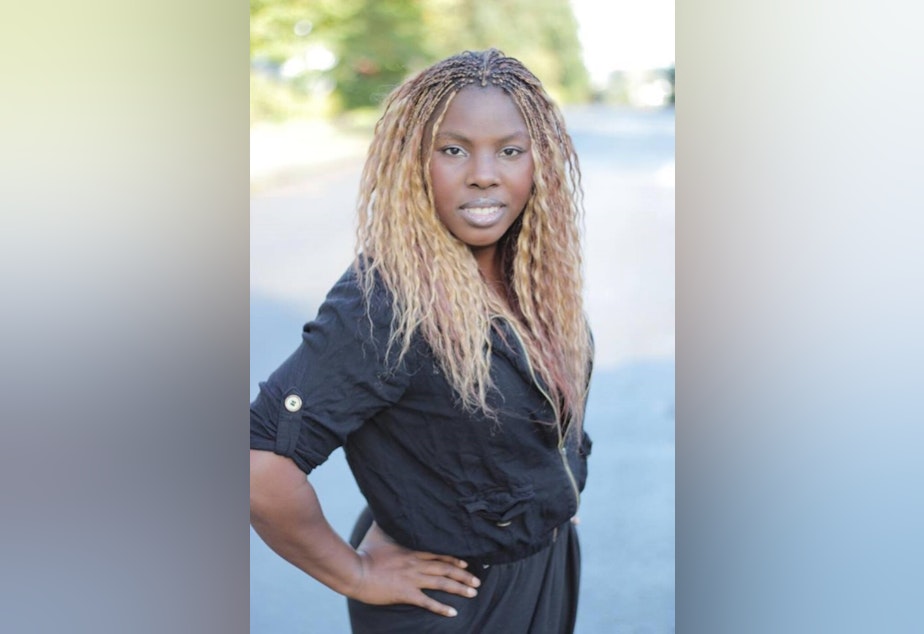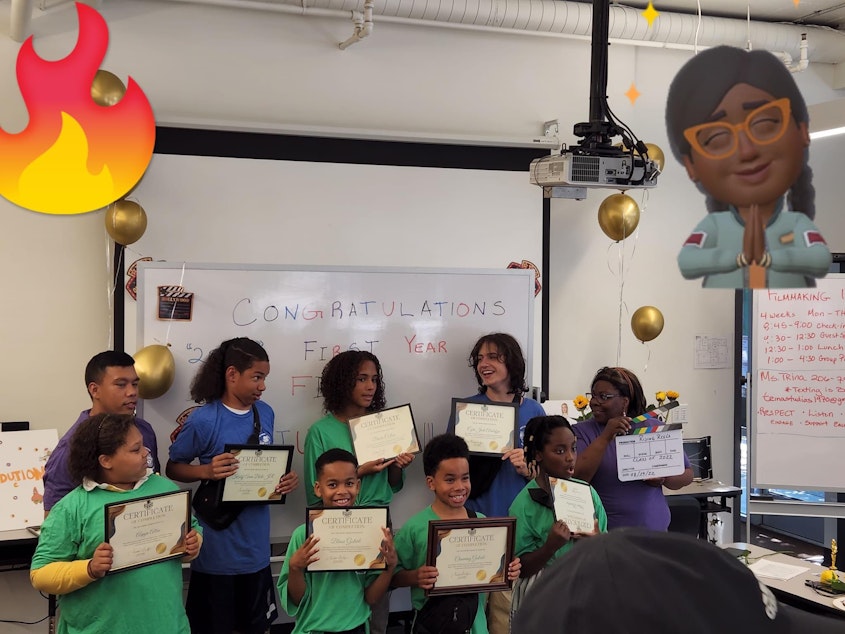'Not just mayhem and gore': How one Seattle filmmaker found their place in horror

RadioActive's Ada Walther loves horror films. Ada sat down with local filmmaker Abie Ekenezar to talk about the genre. They talked about how Abie got into making horror films, and what they see as the future of horror, sci-fi, and speculative fiction.
[RadioActive Youth Media is KUOW's radio journalism and audio storytelling program for young people. This story was entirely youth-produced, from the writing to the audio editing.]
I
n the beginning of their film career, filmmaker Abie Ekenezar wrote off horror as a genre. They found horror films exploitative and too violent.
But Abie started to see horror in a new light thanks to filmmaker Jordan Peele, who made horror films like "Get Out" and "Us." Abie said they connected with those films because they are rooted in meaningful cultural commentary, not just shock factors like fear and gore.
“I'm way more into horror that actually has meaning," Abie said. "I’m just appreciative of films that have a story, not just mayhem and gore. I'm so much more appreciative of some of the new horror that's been coming out that actually has some kind of cultural basis behind it."
Sponsored
I asked Abie why they think people are drawn to horror.
“People need to explain fears, right? I mean, who doesn’t experience fear in everyday life?" Abie said. “So to be able to have that connection to a picture, and then have other people have that connection to a picture, you can find solidarity in that. And t’s really important to also be able to channel that into something creative.”
Abie is currently working on a speculative fiction anthology film inspired by Octavia Butler. Speculative fiction encompasses imagined, supernatural, or futuristic elements. The film will be an intermingling of stories created by a diverse collection of writers.
"They’re all different cultural backgrounds," Abie said. "We have a Latinx queer person who wrote a beautiful story. We have two Black woman who wrote really, really wonderful stories. One of the stories is a First Nations story. And then we have someone from Japanese origin who submitted a story too. So I’m really excited, because I'm kind of sick and tired of seeing the same faces over and over again."
Sponsored

Abie is the vice president of Rising Reels, a program that gives Black kids, Indigenous kids, and kids of color an opportunity to experience the filmmaking process. Lately, Abie has been working on all-BIPOC film crews. And they said there’s been a lot of laughter on those sets, because the experience is more enjoyable.
But the process of making horror films isn’t always full of laughs. Abie gets shaken up on set sometimes, like the time they got grossed out by an actor in special-effects makeup.
“When he came out after all of his makeup was done, I think I threw up. Or at least, tried not to throw up in front of everyone," Abie said.
Hearing from a filmmaker who uses horror as a way to dispel cultural stereotypes and represent diverse perspectives changed how I look at the genre as a whole. Horror movies can be a way for queer and BIPOC creators to express and work through trauma, and allow marginalized filmmakers and audiences the space to reclaim the genre as their own.
Sponsored
This story was produced in a RadioActive Youth Media one-week Intro to Radio Storytelling workshop for high school-age youth. Production assistance by Dayana Capulong and Leila M'baye. Prepared for the web by Charlotte Engrav.
Find RadioActive on Instagram, Twitter, TikTok, YouTube and Facebook, and on the RadioActive podcast.
Support for KUOW's RadioActive comes from the Bill & Melinda Gates Foundation Discovery Center and BECU.



